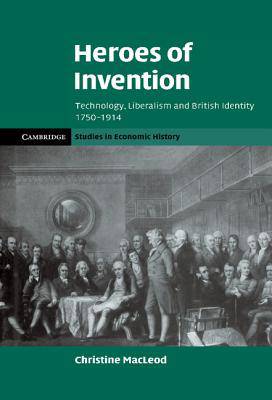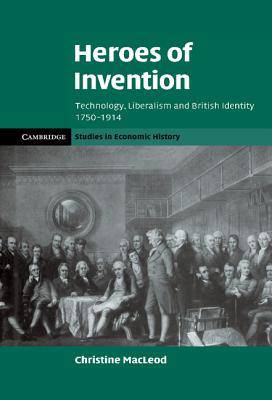
- Afhalen na 1 uur in een winkel met voorraad
- Gratis thuislevering in België vanaf € 30
- Ruim aanbod met 7 miljoen producten
- Afhalen na 1 uur in een winkel met voorraad
- Gratis thuislevering in België vanaf € 30
- Ruim aanbod met 7 miljoen producten
Zoeken
€ 167,95
+ 335 punten
Uitvoering
Omschrijving
This innovative study adopts a distinct perspective on both the industrial revolution and nineteenth-century British culture. It investigates why inventors rose to heroic stature and popular acclaim in Victorian Britain, attested by numerous monuments, biographies and honours, and contends there was no decline in the industrial nation's self-esteem before 1914. In a period notorious for hero-worship, the veneration of inventors might seem unremarkable, were it not for their previous disparagement and the relative neglect suffered by their twentieth-century successors. Christine MacLeod argues that inventors became figureheads of various nineteenth-century factions, from economic and political liberals to impoverished scientists and radical artisans, who deployed their heroic reputation, not least to challenge the aristocracy's hold on power and the militaristic national identity that bolstered it. Although this was a challenge that ultimately failed, its legacy of ideas about invention, inventors, and the history of the industrial revolution remains highly influential.
Specificaties
Betrokkenen
- Auteur(s):
- Uitgeverij:
Inhoud
- Aantal bladzijden:
- 476
- Taal:
- Engels
- Reeks:
Eigenschappen
- Productcode (EAN):
- 9780521873703
- Verschijningsdatum:
- 28/01/2008
- Uitvoering:
- Hardcover
- Formaat:
- Genaaid
- Afmetingen:
- 159 mm x 233 mm
- Gewicht:
- 866 g

Alleen bij Standaard Boekhandel
+ 335 punten op je klantenkaart van Standaard Boekhandel
Beoordelingen
We publiceren alleen reviews die voldoen aan de voorwaarden voor reviews. Bekijk onze voorwaarden voor reviews.











